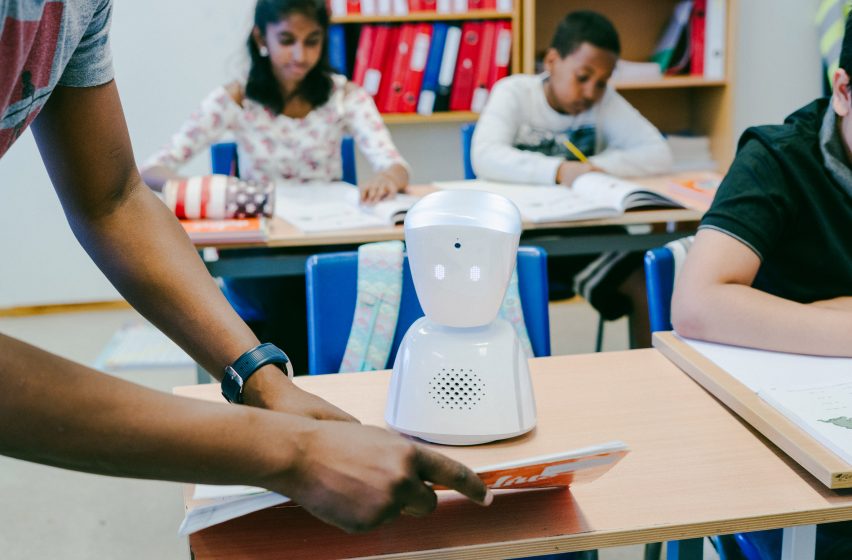
AV1 is a robot that helps ill children keep up with schoolwork
Norway's installation at the London Design Biennale features a telepresence robot, which keeps kids in touch with the classroom if they're off school with long-term illness.
Called AV-1, the small white robot is designed by a Norwegian start-up called No Isolation. It sits in the classroom at school so that children can receive the same teaching from their bed at home or in hospital, and can also stay connected with school friends.
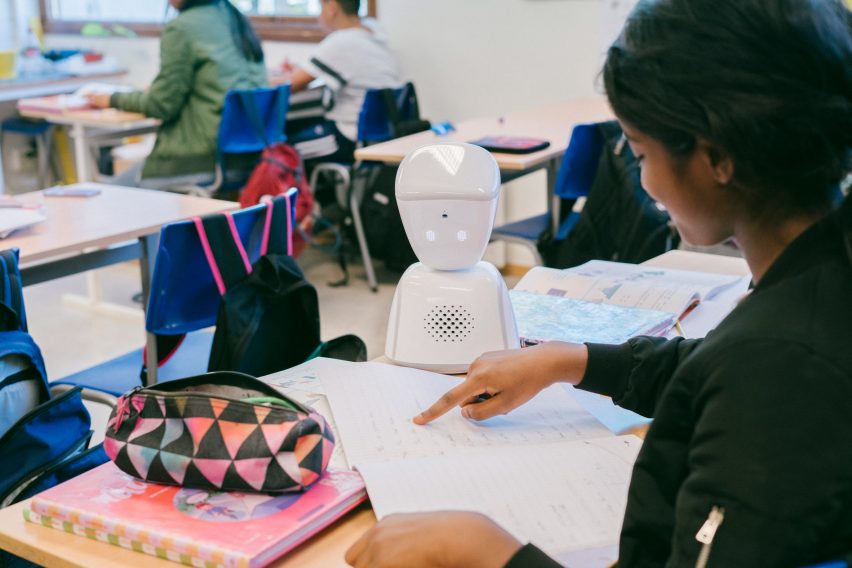
The robot is fitted with a camera, speaker and microphone, allowing it to stream audio two-ways. But crucially it only streams video in one direction, as researchers found that ill children didn't want to be on display.
AV-1 has two motors, so it can raise and lower its head, and swivel 360 degrees. This means that the child at home can get a good view of everything that's going on in the classroom.
It is also fitted with both Wi-Fi and 4G connectivity, so that it can connect a sick child with friends in the playground during break time.
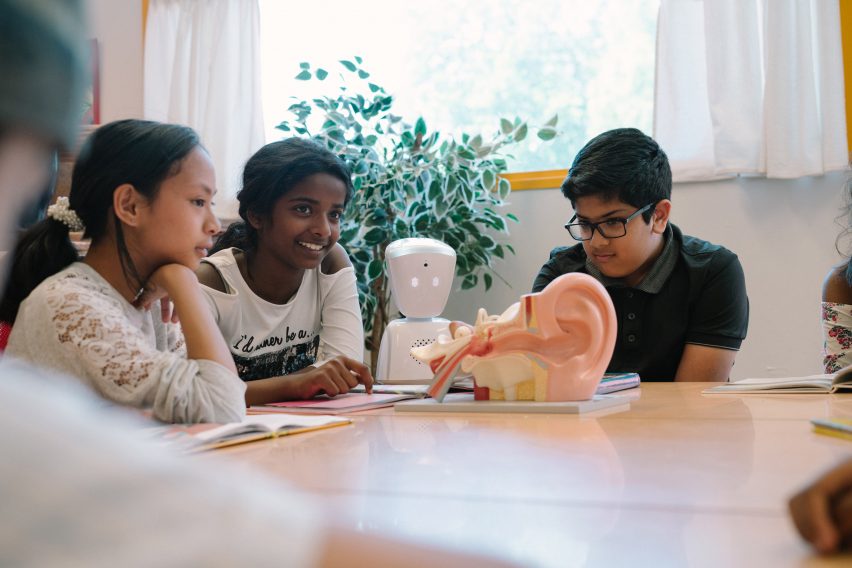
No Isolation was developed after research found that hospital stays separate children from learning at crucial points in their education and also separate them from peers, resulting in loneliness.
It is one of two products chosen by curator Onny Eikhaug for Norway's participation at the London Design Biennale, titled Learning and Play for All: Inclusive Design in the Classroom.
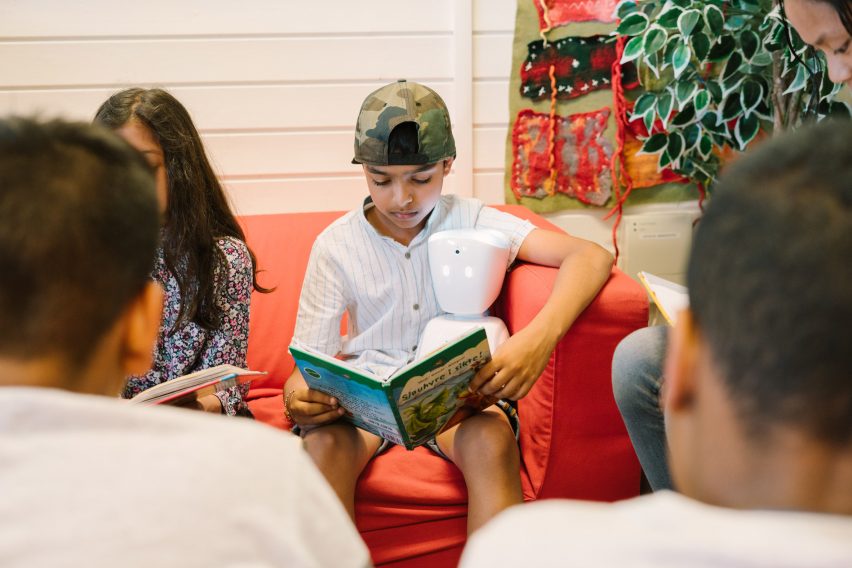
Eikhaug is in charge of the government-funded Innovation for All programme in Norway, which promotes inclusive design in public life. In her experience, AV-1 has been a successful tool in combatting isolation.
"AV-1 communicates the value of empathy within technology and emotion within the digital realm," she explained.
"You can create great aesthetic stuff, but if it doesn't work, if it doesn't appeal, if it's not user-friendly, if it doesn't meet your needs, there's no point."
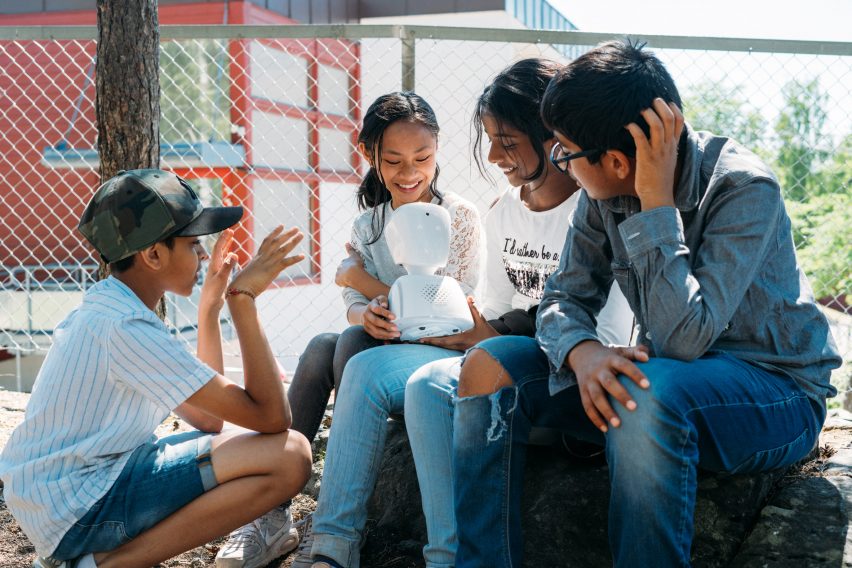
Eikhaug believes that disabled users can help improve technology because they have a unique user experience that will drive creativity.
"Don't go for the able-bodied young guy, go for those who are marginalised and can pinpoint what the barriers are. They can tell you something about how their product really works for them," she said.
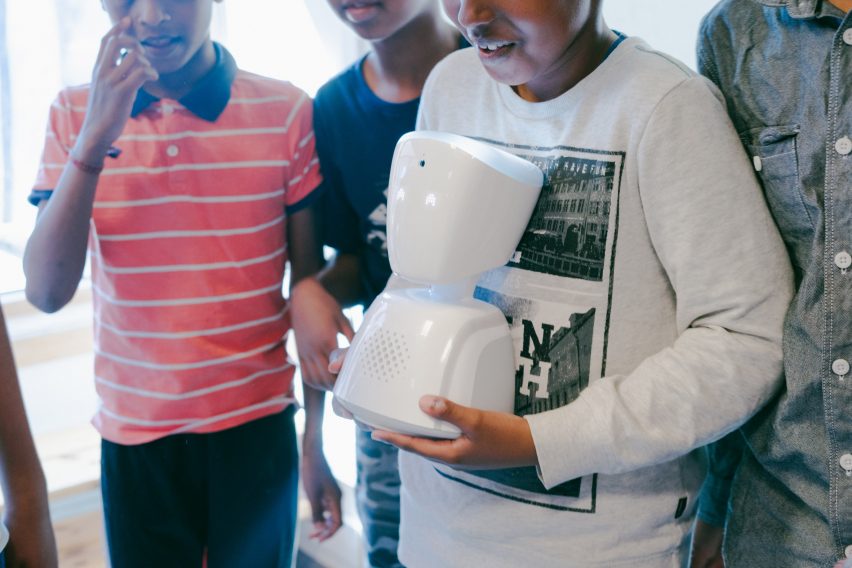
The product is currently used by around 500 children across Europe. Of these, 50 are in the UK. But that number is set to increase soon, as the government has awarded funding for 90 robots for a two-year project.
Currently 72,000 children in the UK are unable to attend school because of long-term illness – so there is a clear market for the product.
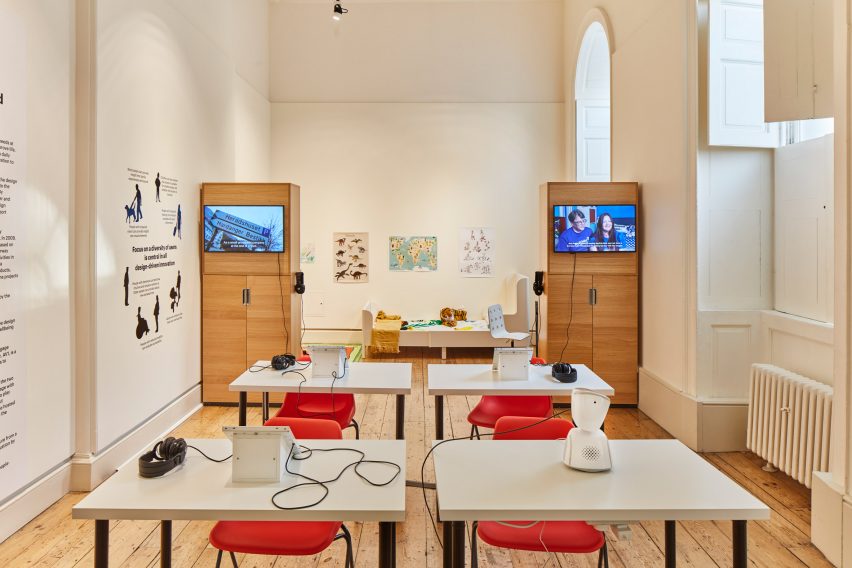
London Design Biennale opens at Somerset House today and continues until 23 September.
In Norway's exhibition, AV-1 is presented in a space designed to look a classroom, showing how the robot works in practice. The other product on show is Kahoot, a gaming platform designed to make learning more fun.
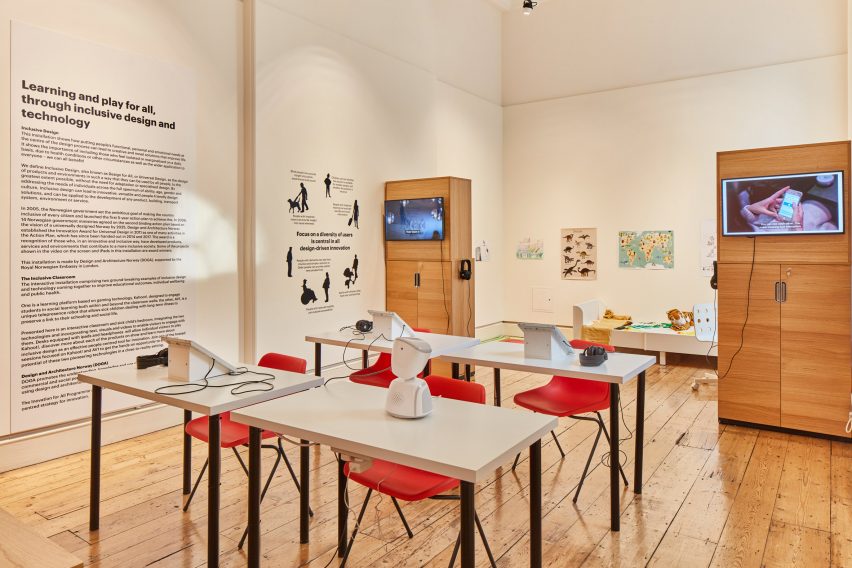
Chris Turner, artistic director of the London Design Biennale, described it as an "intriguing installation".
Norway has recreated a classroom, in which a robot and other pedagogical technologies are on display to teach us all about the power of inclusive, people-centred design, which is at the heart of government policy in their country, as it should be everywhere," he said.